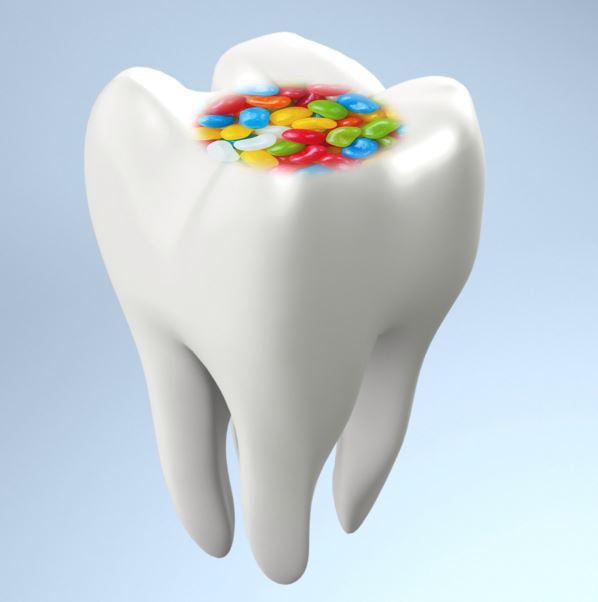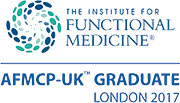Let's Pull that Sweet Tooth
Jun 6, 2024
Posted by: Monique Parker
On Sunday 23 June I was a speaker at the Allergy & Free-From Show at Olympia, London.
My talk was about sugar: ‘Let’s Pull that Sweet Tooth – Why We Should Go Sugar-Free’
The purpose of the talk was to explore the benefits and pitfalls of a sugar-free lifestyle, especially for people with allergies and/or those following a free-from diet.
There is an increasing prevalence of food allergies and a growing interest in free-from diets due to health concerns.
Here is an overview of the content of the talk.
Understanding the Sugar Dilemma
What is sugar? It is basically a generic name for ANY sweet-tasting soluble carbohydrates.
1. What sugar do we need and why?
Our body only needs one type of sugar to survive and that is GLUCOSE.
Glucose is a natural sugar when consumed directly from whole foods such as fruit, vegetables, grain etc.
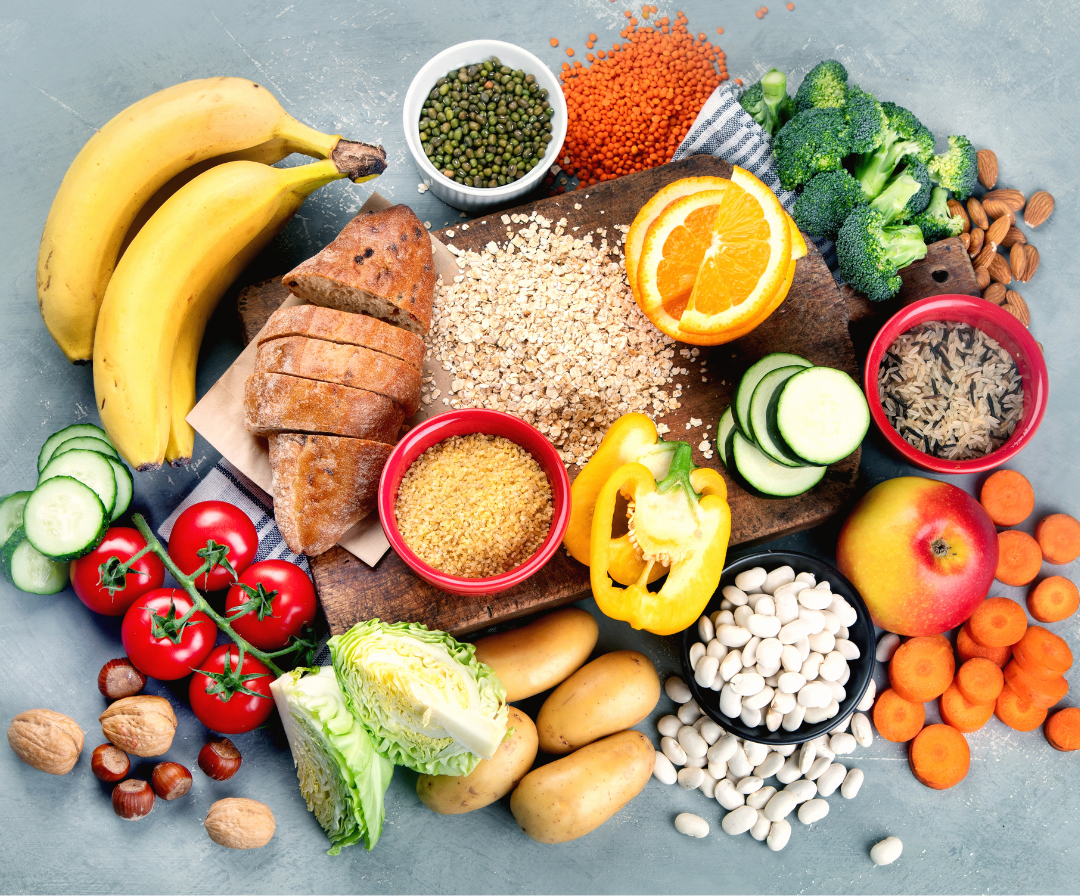
It’s fuel for our cells and the main source of energy for our brain. We don’t need to add glucose to our diet as the body can get the glucose it needs from breaking down food molecules, especially carbohydrates.
Glucose is also generated by the body to make sure that we always have what we need.
When your body doesn't immediately need glucose from the food you eat for energy, it stores glucose primarily in your muscles and liver as glycogen, for later use.
This is done is by breaking down glycogen to free up the glucose it contains. Glycogen breakdown occurs between meals or during periods of intense physical activity.
The liver can also convert excess protein (certain amino acids) into glucose. And excess glucose can be converted into fat and stored in our fat cells.
There are other natural sugars that can be used for energy for the body, but they are not necessary nutrients, for example:
FRUCTOSE - natural sugar found in fruits, vegetables, and honey

Unlike glucose, fructose is metabolised by the liver, where it can be converted into glucose or stored as fat. Excessive fructose intake can cause health issues such as fatty liver disease and insulin resistance.
SUCROSE table sugar (fructose and glucose) (sugar cane and sugar beets are used to make table sugar)

LACTOSE sugar found in milk (glucose and galactose)
MALTOSE found in germinating grains (malted drinks)
Maltose is also formed in the gut when starches are broken down into glucose.
ADDED SUGARS
Most added sugars are composed of glucose and fructose in varying ratios. Sucrose (table sugar) is 50% glucose and 50% fructose; the most common form of high-fructose corn syrup (HFCS) is 45% glucose and 55% fructose; and some types of agave nectar contain up to 90% fructose and 10% glucose.
Added sugars are sweeteners that are added to foods. They don’t occur naturally.
Natural sweeteners (containing fructose and/or sucrose)
• Honey (40% glucose/60% fructose)
• Maple syrup
• Coconut sugar
• Agave syrup (84% fructose!)
Natural sweeteners that don’t contain fructose and glucose:
• Monk fruit extract
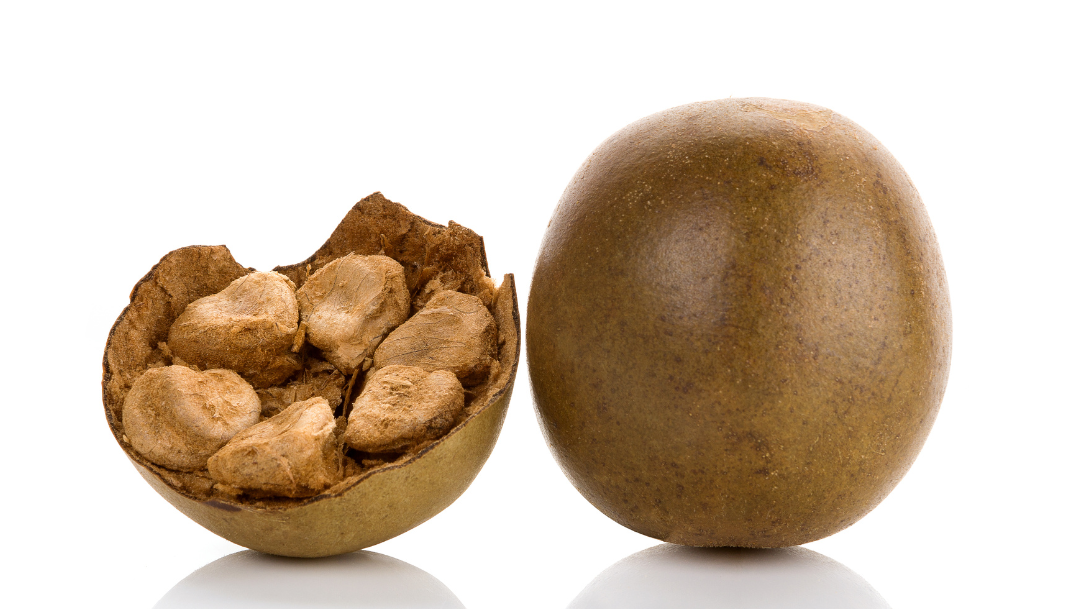
250x sweeter than table sugar but has a bitter after-taste.
No research available on the effects of long-term use
• Stevia
250 x sweeter than table sugar, but like monk fruit extract it has a bitter after-taste.
Although natural, it is still a highly refined product
Artificial sweeteners
• Aspartame
• Saccharin
• Sucralose
Artificial sweeteners are often used in sugar-free or low-calorie products.
There is an increased risk of developing health problems such as T2D or metabolic syndrome if you consume these sweeteners long-term.
Sugar Alcohols
• Xylitol
• Erythritol
• Sorbitol
The chemical structure of sugar alcohols is like that of sugar, they activate the sweet taste receptors on your tongue.
Sugar alcohols can cause digestive issues like bloating and diarrhoea. Our bodies cannot digest most of them, so they travel to the large intestine, where our gut bacteria break them down.
2. What impact has sugar on our health?
Most people know what health impacts excessive sugar intake has: obesity, diabetes, cardiovascular disease, and dental issues.
There is a specific issue that I would like to highlight, given this talk was for the Allergy and Free-From Show.
Sugar can exacerbate allergies and sensitivities for some individuals with gluten or dairy intolerance for instance.
Excessive sugar can cause inflammation in the body.
Inflammation plays a major role in allergic reactions. When the body detects an allergen, it releases inflammatory chemicals that can cause swelling, itching etc. Excessive sugar intake makes the inflammatory response worse, so the symptoms will be more severe and last longer.
Excessive sugar can also compromise the immune system, making us more susceptible to allergic reactions.
It can impair the function of our immune cells and cause gut dysbiosis. A healthy gut microbiome is essential for a well-functioning immune system. This is explained by the fact that 70-80% of our immune cells are located in the gut!
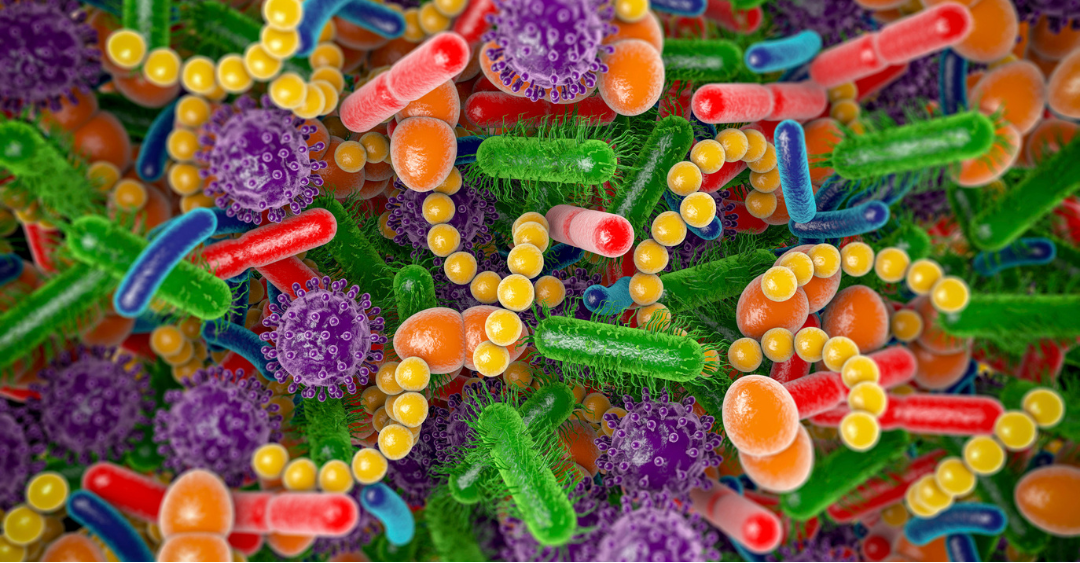
Another issue I would like to mention here is blood sugar dysregulation.
When you consume excessive sugar, including high-glycaemic carbohydrates, i.e. white rice, our blood sugar level quickly spikes.
Our pancreas responds to this by releasing insulin to help take the sugar from the bloodstream into cells so it can be used for energy.
Constant excessive sugar intake can lead to insulin resistance, where cells become less responsive to the insulin signals and don’t effectively take up glucose from the blood, causing continually high blood sugar levels.
A little anecdote …
My paternal great grandfather was a baker, and my paternal grandfather was a confectioner & chocolatier. Both men used to take leftovers home at the end of the day, much to the family’s delight. But, most of their descendants had or have diabetes, till this day.
My last comment on the impact of sugar on our health, is the issue of the 'empty calories'. High sugar foods and drinks often contain a lot of calories but very little nutrients, hence the term ‘empty calories’.
3. Why are we so addicted to sugar?
There are a lot of reasons why most of us are so addicted to sugar.
• We are born with a ‘sweet tooth’
According to Daniel Lieberman, an evolutionary biologist at Harvard University, “Sugar is a deep ancient craving”. Our primate ancestors evolved to liking riper fruit because it contains more sugar and gave more energy. But not only that, fructose can be stored as fat and in times when food was scarce, this was a life saver.
And then there is breast milk, which is sweet and linked to feelings of security and love.

So, there is a natural tendency towards sweeter foods.
• Sugar activates sweet taste receptors on our tongue, and it is not just sugar but artificial sweeteners too.
Taste buds tell us what we are eating or drinking and whether it tastes “good” or “bad.” This information makes eating pleasurable.
Some of us are born with more sweet receptor taste buds than others. Having more sweet receptors means that you react more strongly to sweet flavours.
• Sugar activates the brain’s reward system by triggering the release of dopamine, a feel-good neurotransmitter that gives us a temporary feeling of
pleasure.
The problem is that over time a high sugar intake can lead to desensitisation of this brain reward pathway, and you will need more and more sugar to create the same feeling of pleasure. This can lead to cravings and addiction.
• Excessive sugar intake may cause addiction, just like drug addiction such as cocaine and opioids.
• Sugar also boosts serotonin levels. Serotonin, like dopamine, is also a neurotransmitter that makes us feel good, but it is lasting longer than dopamine.
During a blood sugar dip (after consuming excessive sugar and/or simple carbohydrates), serotonin levels are often low too. Hence, we are feeling miserable and will reach for more sugary foods.
• Excessive sugar intake causes high blood sugar levels and insulin spikes. Once you become less sensitive to insulin, your pancreas has to produce more. You will feel hungrier and want more sugar and simple carbs.
• Psychological factors in sugar addiction.
1. To get a quick energy and mood boost (followed by a crash so another boost is needed).
2. Emotional eating: sugar to cope with negative emotions, stress, and anxiety.

3. Habit-forming
• Sugar is everywhere, even in products where you don’t expect it, such as soups, pasta sauces, bread, sausages etc.
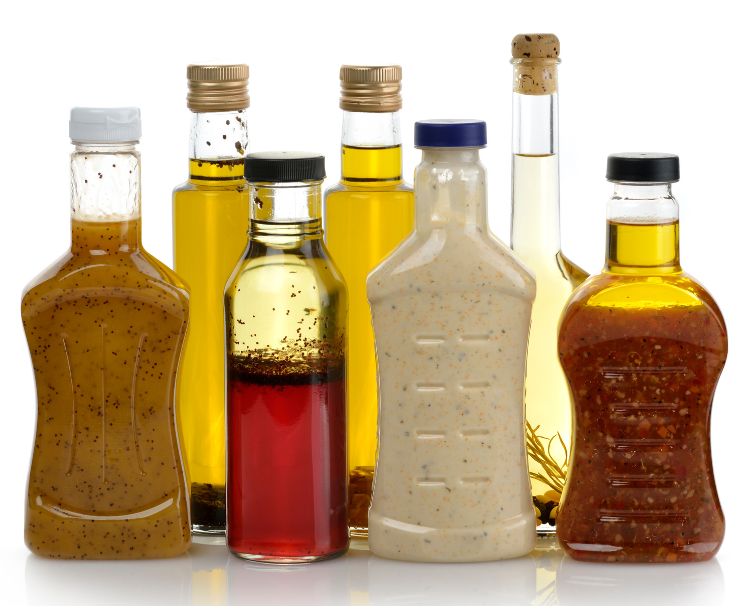
• Sugar is easily available and accessible.
• Sugar is part of our cultures (i.e. birthday cake, sweets as a reward, Sugar Feast after Ramadan etc.)

4. How to beat the Sugar-Addiction?
• First of all, do not feel guilty! Unfortunately, sugar is everywhere.
• If you feel you are addicted to sugar, try to beat the cravings by going for whole foods that can help satisfy hunger and reduce cravings for sugary snacks.
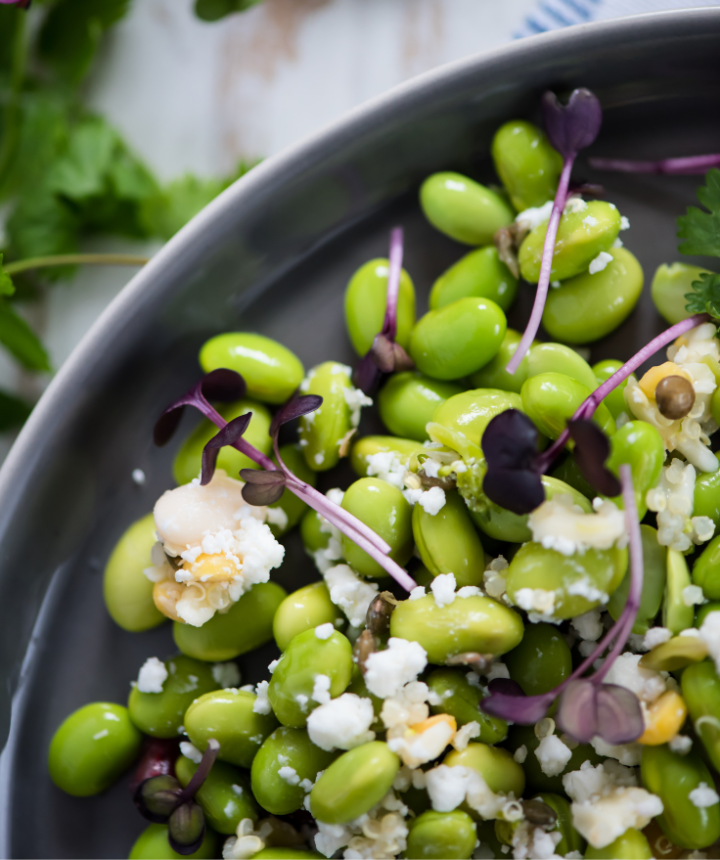
• You can train your taste buds to like opposite flavours in your diet. For example, bitter foods like rocket or kale, or sour foods like gooseberries or sauerkraut. Once you get used to them you will find sweet foods taste too sweet.
• Include enough fat, protein and fibre in your meals and snacks.
• If you find going ‘cold turkey’ too much, and you need something sweet, make a smoothie with protein, fat and/or fibre and add 1 medjool date or half a frozen banana. Dried dates are a low-glycaemic food and contain lots of fibre, a medium banana contains less fructose than 1 date!
• Have a savoury breakfast. A ‘sweet’ breakfast makes your blood sugar spike and will deregulate your blood sugar for the rest of the day (spikes and crashes).
• Eat regular meals (skipping meals or going too long without food can cause blood sugar fluctuations and increased cravings for sugary foods).
• Prepare for difficult moments: do something you enjoy (i.e. call a friend, sport, music etc.) or have a sugar-free healthy snack like nuts, boiled egg, vegetable sticks.
• Stay hydrated (often thirst is mistake for hunger).

• Get enough sleep (lack of sleep can disrupt hormone levels and increase cravings for sugary foods).
• Manage stress (stress and emotions can lead to comfort eating).
• Clear out your kitchen cupboards and other food storage places
• Read food labels, especially to be aware of hidden sugars, so you can make better choices.
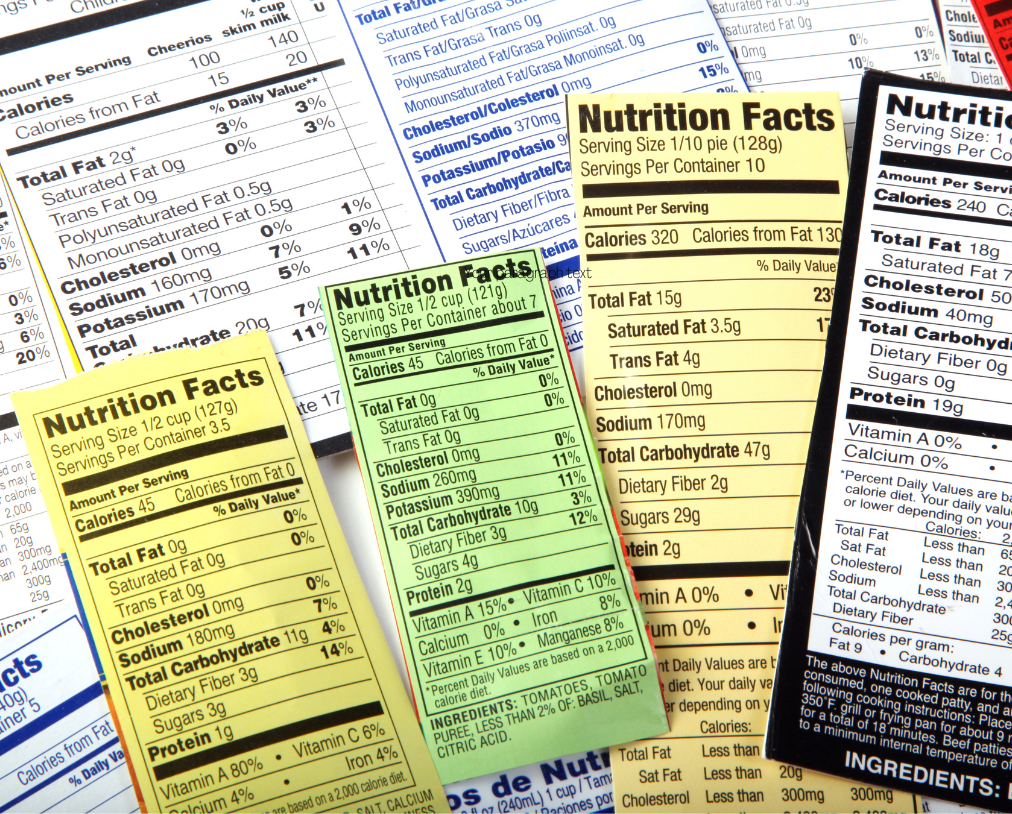
• If you can’t overcome the sugar addiction on your own, find help from a health practitioner, i.e. a nutritionist, or a counsellor.
5. Navigating a Sugar-Free Lifestyle
As seen before, there are many factors that can keep us hooked on sugar and it is certainly not easy to go sugar-free.
In the nutrition world the advice is often given to consume “everything in moderation”, but unfortunately this doesn’t really work with sugar, given the addictive nature of sugar (and refined carbohydrates).
Some misconceptions about sugar-free foods:
1. Many processed foods labelled as "sugar-free" may still contain high levels of unhealthy artificial additives such artificial sweeteners, hydrogenated oils, artificial flavourings etc.
2. Sugar-free means tasteless: Not true. There are many natural ways to sweeten foods and beverages without adding sugar, such as using spices like cinnamon or vanilla extract, or naturally sweet fruits like berries or a piece of banana.
3. Sugar-free diets are super restrictive: Not true. Focusing on whole, nutrient-dense foods like fruits, vegetables, lean proteins, and whole grains can provide a good variety of flavours and textures while supporting overall health and well-being.
4. All sugar-substitutes are equal: as seen before this is not true.
5. Sugar-free means weight-loss: Not always true.
While reducing your sugar intake can be beneficial for weight management, just switching to sugar-free alternatives does not guarantee weight loss.
Indulging in sugar-free products or compensating for reduced sugar intake with higher calorie foods can still cause weight gain.
The health benefits of going sugar-free
• Improved energy levels
• Stabilised blood sugar levels
• Better weight management
• Reduced risk of chronic diseases
Conclusion
- Going Sugar-Free, although not easy, is beneficial for your health, especially if you already suffer from allergies or food sensitivities.
- Make informed food choices and read labels!
- Eat whole foods that contain enough protein, fat, and fibre.
- Eat regular meals and stay hydrated
- Manage stress and get enough sleep
- Find help if you can’t overcome the sugar addiction on your own
- Try to educate yourself.
Books:
- "I Quit Sugar: Your Complete 8-Week Detox Program and Cookbook" by Sarah Wilson
- "Year of No Sugar: A Memoir" by Eve O. Schaub
- "Breaking the Sugar Habit: Practical Ways to Cut the Sugar, Lose the Weight, and Regain Your Health" by Margaret Wertheim
- “Pure, White and Deadly” by John Yudkin
Podcasts: - Is sugar the world’s most popular drug? The Guardian podcast, written by Gary Taubes
- Swap Out Sugar, BBC Radio Four, Michael Mosley
- The Sugar Addict Coach Podcast
- The Kick Sugar Coach

